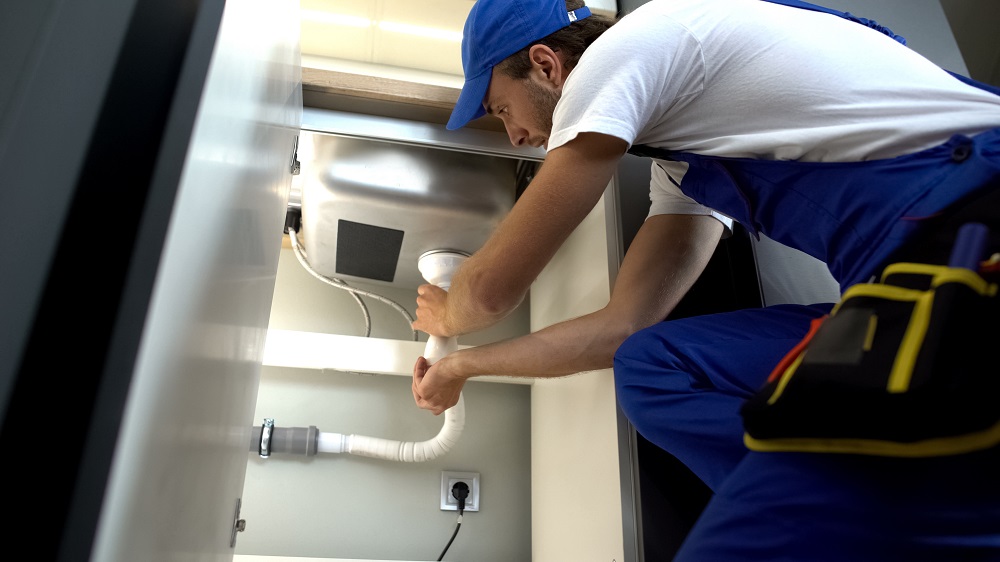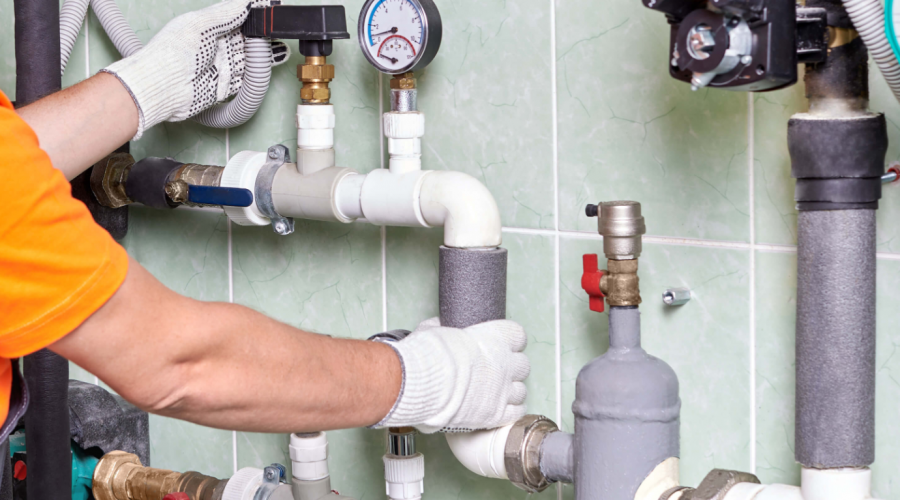They are making several great pointers related to Expert Tips for Managing a Plumbing Emergency Until Help Arrives in general in this post underneath.

Pipes emergency situations can strike any time, creating stress and anxiety and potential damage to your home. Whether it's a ruptured pipeline, a clogged drain, or a leaking tap, recognizing just how to take care of the situation until an expert plumbing shows up can conserve you from more complications. This article provides important emergency plumbing tips to help you reduce damage and gain back control throughout a pipes dilemma.
Shut off the Water
The very first step in any kind of pipes emergency situation is to shut down the water. For local concerns, such as a dripping tap or commode, switch off the shutoff near the component. When it comes to a significant leakage or ruptured pipeline, find your home's primary water shut-off valve and turn it off instantly. Understanding the location of these shutoffs ahead of time can conserve useful time throughout an emergency.
Address Little Leaks with Temporary Fixes
Small leakages can promptly come to be considerable issues if left unattended. Utilize these short-term fixes till specialist assistance shows up:
While these repairs aren't permanent, they can help decrease water loss and damage.
Unclog Drains Pipes Safely
A blocked drainpipe can be an irritating and untidy issue. Below's exactly how to tackle it:
If these methods do not work, avoid making use of extreme force, as it might aggravate the blockage.
Take Care Of Overflowing Toilets
An overruning bathroom can create instant mayhem. Here's what you need to do:
Shut down Your Water Heater
In specific emergency situations, such as a burst pipe, it's important to shut off your water heater. This stops getting too hot or damage to the system when water quits flowing. Shut off the power supply to the hot water heater (electrical or gas) and let it cool off to prevent prospective risks.
Momentarily Stop a Ruptured Pipeline
A burst pipeline can lead to considerable water damages in minutes. To alleviate the concern:
Call a specialist plumbing promptly to address the problem completely.
Take Care Of Frozen Pipes Thoroughly
In chillier environments, icy pipes are a typical emergency situation. If you believe an icy pipe:
Prevent Further Damage
Taking quick action to reduce damage can save you money and time in the future. Below's just how:
. Have an Emergency Situation Plumbing Kit
Prepare a standard pipes emergency kit to handle small problems effectively. Your package must include:
Having these devices handy can make a significant distinction in your capability to handle emergencies.
Know When to Call a Specialist.
While quick fixes can assist temporarily, particular plumbing concerns need immediate specialist interest. Call a plumber if:.
Immediately calling a professional makes certain the problem is fixed appropriately and stops further difficulties.
Final thought.
Plumbing emergency situations can be overwhelming, yet with the ideal knowledge and devices, you can handle the scenario successfully until aid arrives. By switching off the supply of water, addressing little leaks, and making use of short-term solutions, you can reduce damages and keep your home safe. Bear in mind, these suggestions are short-lived services; constantly seek advice from a licensed plumbing technician to handle the origin of the problem. Prep work and fast thinking are your ideal allies in any pipes emergency situation.
8 Helpful Tips for Managing Plumbing Emergencies at Home
If your plumbing system hasn’t failed once, wait for it because almost everyone has a story to tell. Sometimes, it could be simple emergencies such as a leaking pipe, a blocked cistern, or even a big burst pipe. In situations like this, you need to have some handy tips to save you some money and from possible damages.
Take care of minor issues early.
Sometimes, you could have avoided an emergency by taking proactive measures while it was still early. Some major plumbing emergencies can be a result of an ignored minor issue. We recommend that you have items like plumbing tapes and other related items. A plumbing tape can allow you to manage minor leaks before the plumber arrives.
Cut off the water supply.
This tip is essential in almost any type of leakage problem. For problems like minor leakages in the toilet or kitchen, turn off the supply that takes water to the affected pipes. If the leakage is a major pipe, you must shut off the supply valve to the entire building. This will help you avoid flooding your home and neighbors if you share a flat.
Know your plumbing system
Folks typically move into a new apartment without understanding the water supply around the building. This can prove disastrous if a water emergency arises and the plumber is far away. The previous tip will prove useless if you don’t practice this one. More importantly, know where your water shut-off valve is located – you’ll need that knowledge to prevent potential home floods.
Have some common handy tools
There are lots of plumbing emergencies that you can handle without hiring a plumber. That’s why you must keep some tools available always. Some tools that you can use to fix simple plumbing emergencies easily include plumbing tapes, screwdrivers, thread seal tapes, plungers, pliers, tape measures, and rubber gloves.
Insulate your pipes from cold
You’ll save yourself from many plumbing expenses if you protect your water pipes from the cold. This is because of the harmful effects that cold weather can have on your pipes. During winter, your pipes can burst from being overly expected to freezing temperatures. So, make sure insulators are there to keep the pipes working correctly.
Avoid practices that will clog your toilet.
Many people indulge in practices that can damage the plumbing system of the entire building. One of these is when they use their toilet to dispose-off garbage. They flush all kinds of things, such as paper towels, bandages, hairs, female sanitary products, etc., down the toilet. This will block your toilet in the long run, incurring unnecessary expenditures. Dump such waste in the trash instead.
Check your dials regularly.
Sometimes, there could be leakages in your home without noticing them in time. So, constantly monitor your water meter dial. If the dial is reading when there is nobody using water, this is an indicator that there is leaking. Check for leaks immediately. Call a plumber as soon as possible if you can’t find any.
https://www.constructionplacements.com/8-helpful-tips-for-managing-plumbing-emergencies-at-home/

I discovered that blog entry on Expert Tips for Emergency Plumbing Repairs when exploring the internet. Sharing is good. Helping others is fun. I am grateful for your time. Revisit us soon.
More Details